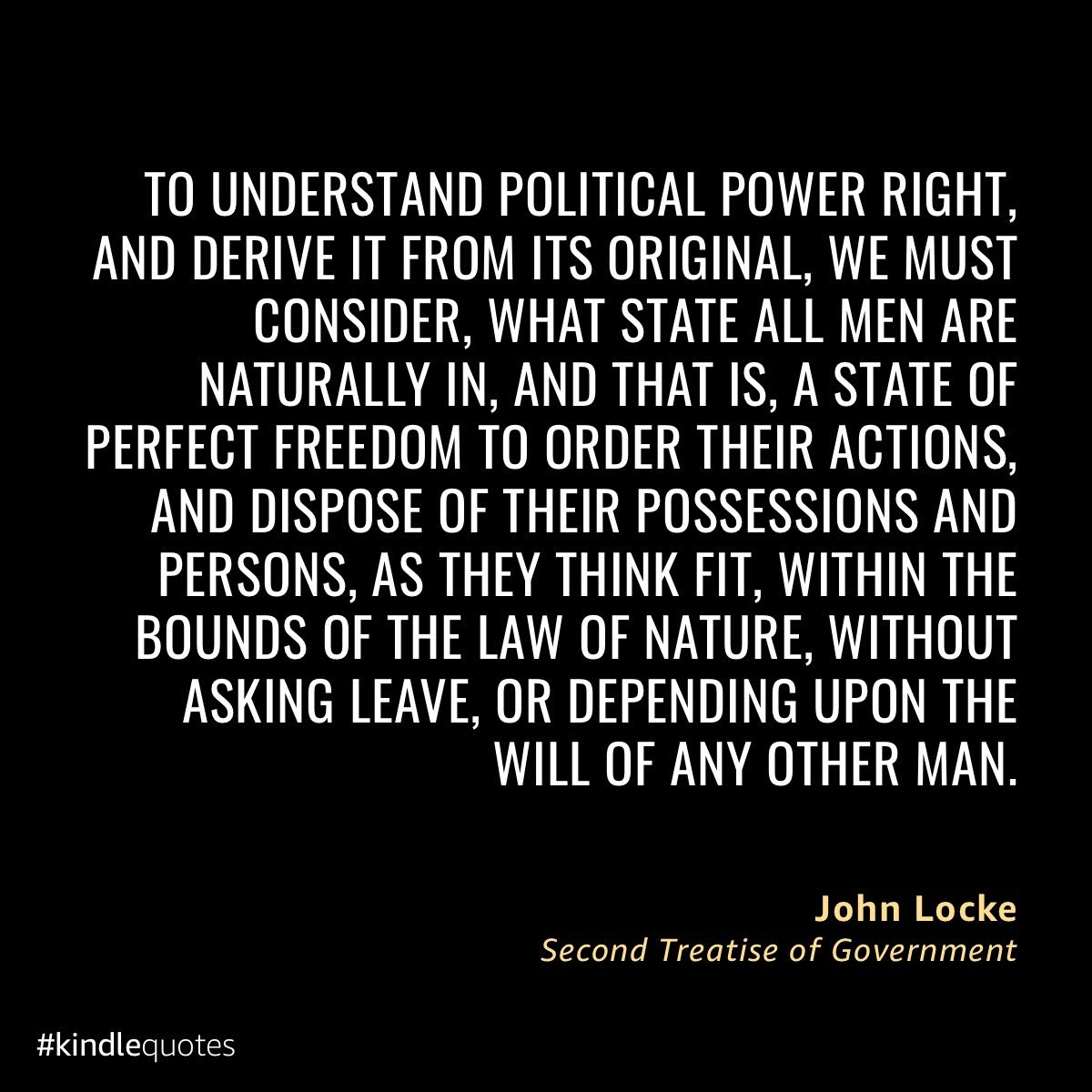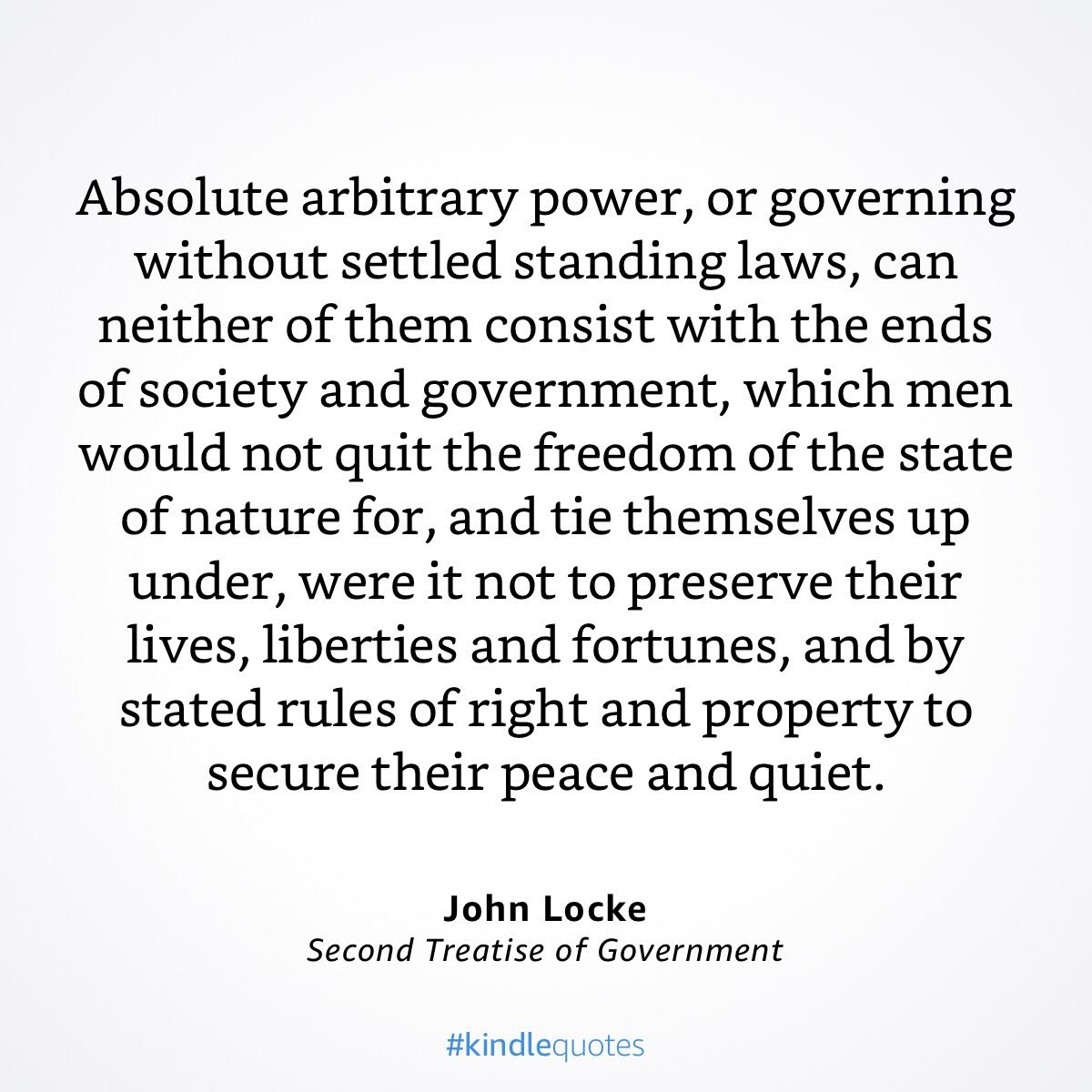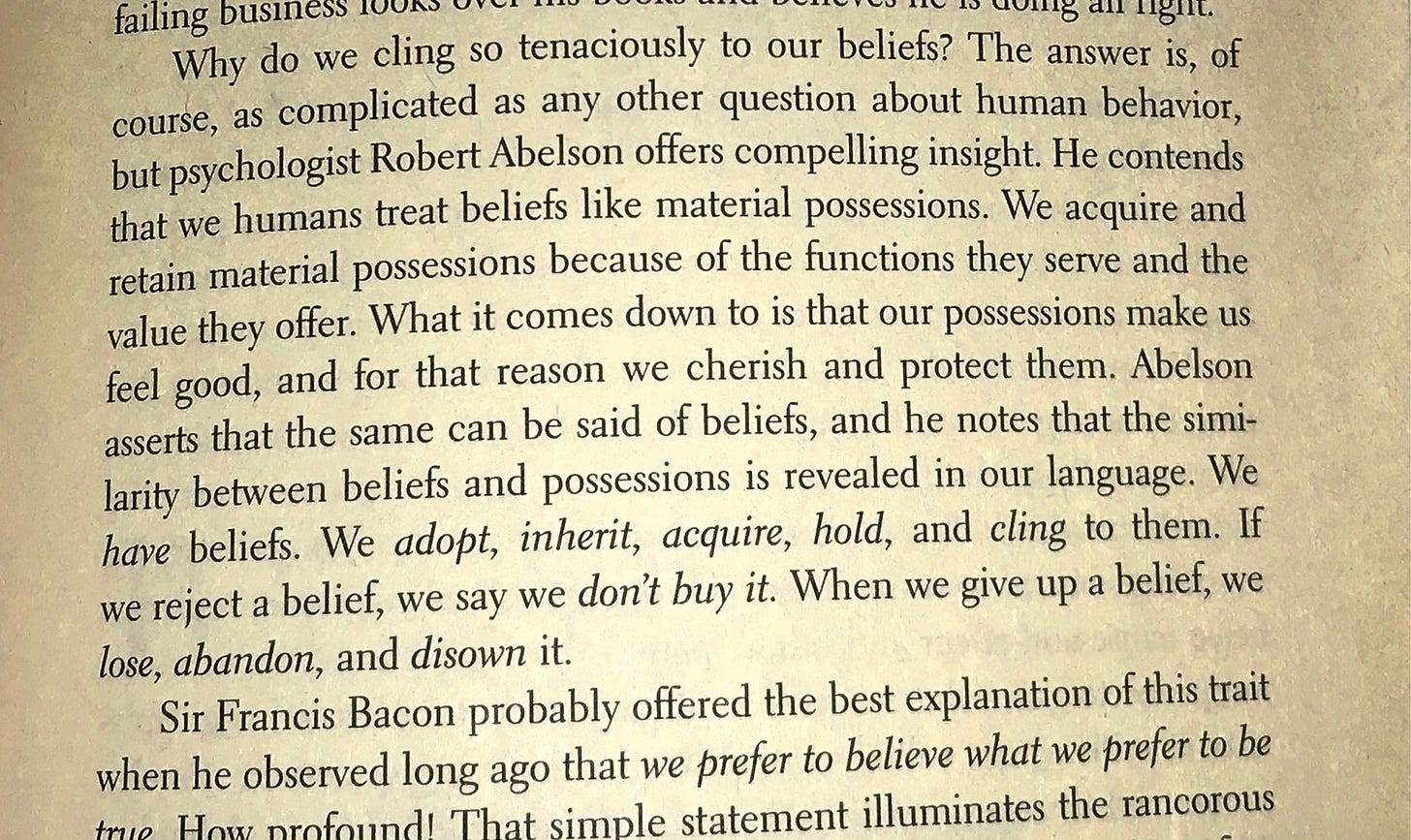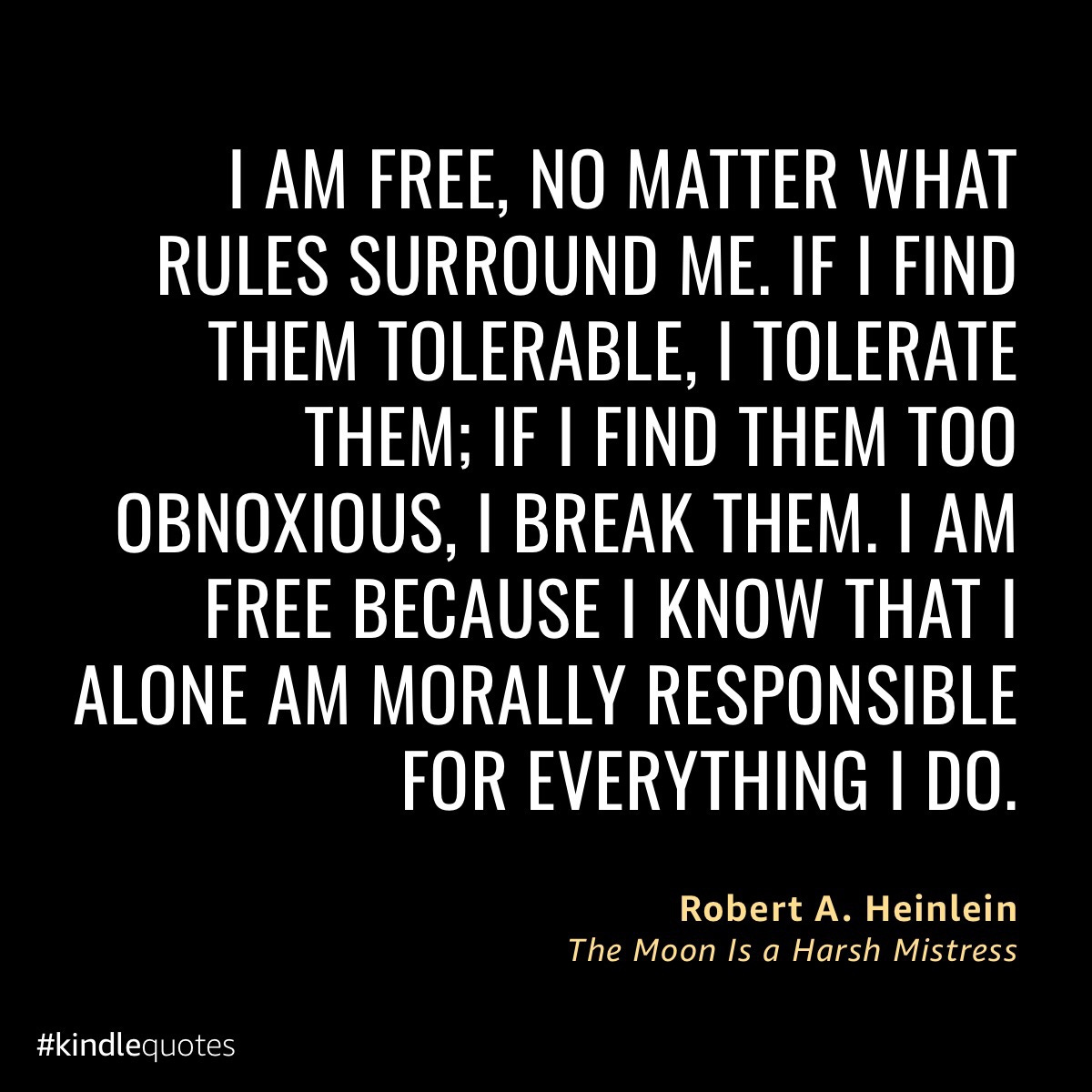The Lone Man
I'd been reading John Locke, as I revisit the origins of my beloved country and remind myself where the freedoms I currently enjoy stem from. It's a good thing to do periodically, as time erodes with it's passage much that we took for granted. Locke, at length, proposes to trace the origination of the commonwealth (literally that the gathering of men into societies and establishment of governments is to protect the wealth, or propety, that a lone man could not do, hence common-wealth) from the state of nature that a free man is born into.

However, a man alone cannot stand up, Locke points out quite rationally, to a hundred men who want to take what the lone man has. Therefore, that man should join together with like-minded men. Indeed, he must, because alone he will quickly perish. Then he, and his kindred brethren with him, must establish laws that allow for the preservation of property, life, liberty, happiness... begin to sound familiar to you? However, Locke cautions in strong terms, the law must not be capricious, nor the rulers who were appointed to represent the men allowed to throw down laws that are arbitrary and depend solely on what they want. Because their power comes from the people who set them up to be in government, not from some high office itself.
We do not have a king.

Locke's point, that men who merely want to preserve their property have the freedom to go elsewhere should the government over them become too capricious, is one that is harder in this modern era, where it seems there is not any refuge for those who seek peace and quiet. Too many prefer not to think very hard about their natural state of freedom, and what is more... Just what that concept of property really covers.
In America, as pampered, spoiled products of the richest culture that has ever existed in the history of the world (and I am not talking about the one percent. I mean all of us. One hundred percent of the citizens of this great nation. We are wealthy beyond the imaginations of kings in the not-too-distant past.) we have developed a disdain for personal possessions. We talk about decluttering, and pooh-pooh the idea of owning property as being a burden. It's a responsibility, because what Locke was talking about is certainly not the collection of coffee mugs with funny sayings, or your video games, or any other peripheral items you have piled up.
Possibly it's not even a tangible thing, this idea of property. Something that belongs to you... and that can be taken away, by force or coercion. As I was reading last night, I came across a sentence that brought me back to Locke, and got me thinking about the current state of affairs in our country. The idea that "we humans treat beliefs like material possessions" as stated by a psychologist, Robert Abelson. The Thinker's Toolkit (by Morgan D Jones) goes on to demonstrate the language used about beliefs and how it shows our feelings toward them.

From The Thinker's Toolkit by Morgan Jones
So then, if we treat our beliefs as property, does leaving the state of a lone man allow us to also protect the contents of our head as well as our house? We are, inside this thick skull, a country all our own, as it were. Locke explains this, too. That we choose to be where we are, but that we have the freedom to be elsewhere. If we do not have that freedom, then we are enslaved.

No one can tell me what to think, or believe. That is mine, and mine alone. Inside my head, if all else I held is lost, I am free. If I am still able to draw breath: no matter the physical constraints that keep my lips from speaking. I am free.
As we do not know what the future will bring, don't forget to protect your property, both physical and the beliefs you carry. Judge them, whether they be worth the efforts in protecting them. Do you really need that cracked mug with the orange cartoon candy on it? Does that cherished belief stand the test of facts or is it based on wishful thinking? Gather what is good and worthy close. Set your flag on it, and say 'this is mine.' and then? Well, a lone man will fall in the face of one hundred who wish to take what is his. In this era, when things are less desirable than control? The lone man's words, his speech, are what the hundred foes want to suppress. So speak. And in speaking, from wisdom and rational thinking, be free from what others want to force you to believe, and stripping away your innermost thoughts, enslave you utterly.




